Explainging Sex to a Kid Funny
While it might be an awkward topic for your child and one that they'd really rather not talk about with you, it's important that they learn about sex and the facts of life from a trusted source, instead of in the playground or online.
But feeling uncomfortable, not knowing what to include in 'the talk' or how to talk about it are just some of the primary motives that stop parents from talking to their children about sex. And while it's true that with more inclusive sex education being taught in schools (opens in new tab) from this year onwards and there's a big chance that you won't have to cover as much ground as you might have, all children will likely leave those lessons with more questions than answers.
So if yours come home wondering where babies come from or with more intricate questions, it's best to be prepared with something to say. Especially as a recent poll by the Sex Education Forum (opens in new tab) suggests that young people actually receive the majority of their relationships and sex education at home, across a huge range of issues from 'how to tell if a relationship is healthy' and dealing with puberty (opens in new tab) to 'pregnancy options' and contraception. It's these types of conversations that can help keep children safe as they are growing up, with statistics showing that those who receive 'effective' relationships and sex education more likely to delay sex until they are ready, use contraception and are less likely to have an unwanted pregnancy or an STI.
You might have already touched on talking about sex with your children at home, or at least covered the basics around puberty (opens in new tab) like body changes, but don't presume that one chat is enough. While not all teenagers will be having sex from the moment they turn 16, it's important that if and when they do, they are prepared properly with accurate information and advice to make decisions for themselves.
Here's how to get started with talking to your children about sex...
How to start talking to your child about relationships and sex
Knowing where to start is often the hardest part of talking to children about sex but sticking to need-to-know information is the best way to go, says relationship counsellor and sex therapist at Relate (opens in new tab), Ammanda Major. "As with any questions a child might have, it's important to answer them in an age appropriate way. It's something around choosing appropriate language and knowing that it's okay to ask questions and dealing with the questions and not overloading the child with additional information, going very much at their pace."
"If it's factual information like where babies come from, I think most parents could have a go at explaining that." She adds, "But it's about the language that you use and about encouraging the sense that it's important to feel comfortable in a sexual context, important to feel close to someone and feeling safe enough to be sexual and not about doing things that you don't want to do.
"If you talk to your child in an embarrassed and cut-off way, the child is going to pick up that it's not really okay to talk about this stuff. I think children are naturally curious a lot of the time so they are going to come home with queries and questions or observations. They may ask you about your relationship, so [in that case] it's how much is appropriate to share with a child about what's private between you and partner."
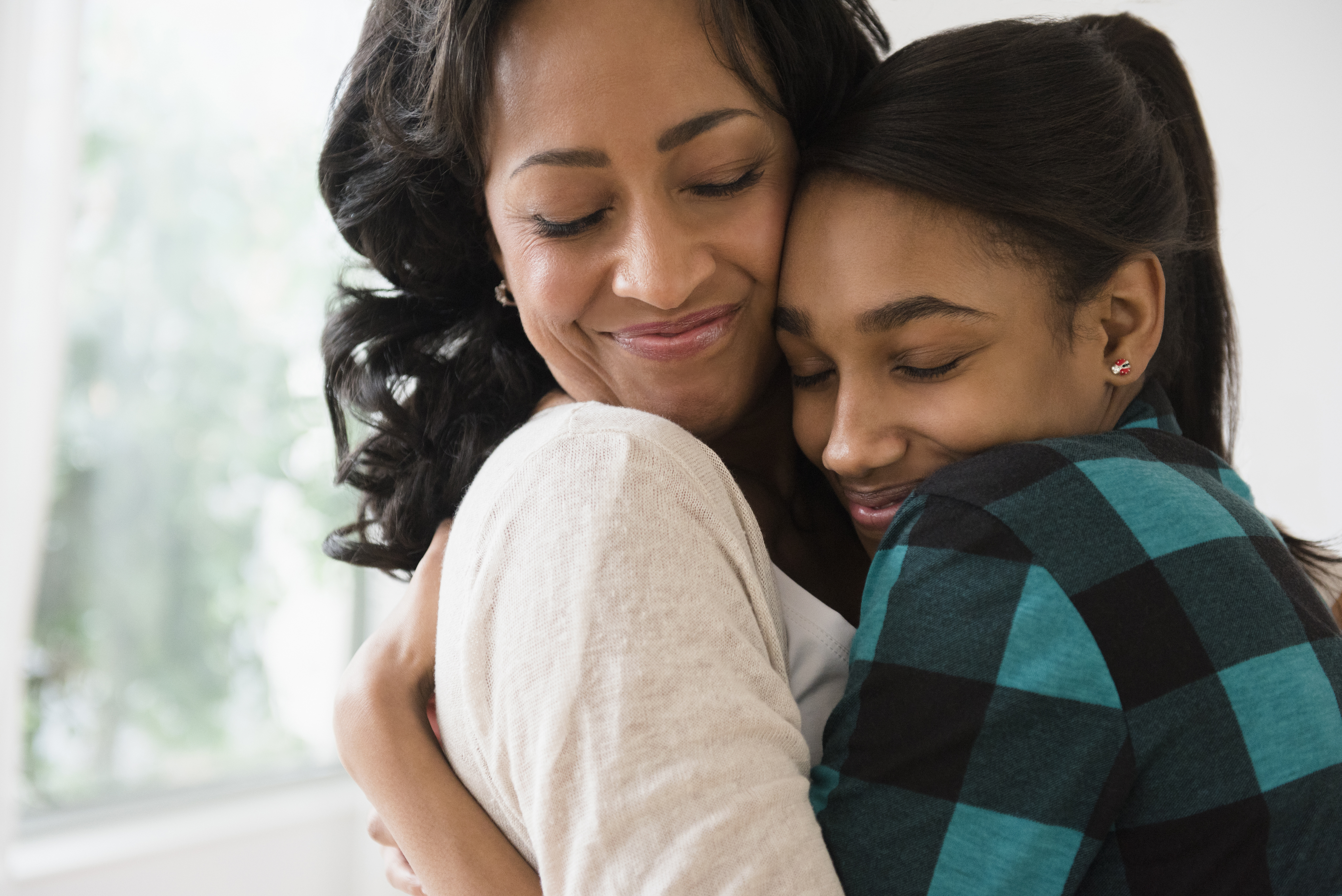
Credit: Getty
By doing this, you're making it clear that they can go back and ask any questions anytime, and that you're not going to tell them off for doing so. "So that they know it's okay to talk about sex an relationships. It's about making yourself available. Not every parent finds it easy to talk with their child about this topic and so you know, perhaps giving a bit of thought beforehand if you know your child is having these lessons at school and thinking about how you might approach the questions."
But if you're finding it all a little awkward, that's completely normal. Ammanda says, however, to think about why that's the case. She encourages parents to think over how they feel about talking to their child about sex and relationships and ask themselves, "Do I look forward to [speaking about] it? Or do I feel like it's embarrassing? Do I not want to talk about it because my own relationship is not what I hoped it was?"
Through understanding your own feelings of talking about sex, you'll be able to give a more positive experience to your child. "Just think about how you wish you'd been spoken to about it," Ammanda advises, "And what you would have liked to be different, [that will tell you] how you can help your child understand things in the best way possible that's appropriate for their age group."
20 tips for talking to children about sex and relationships
1. Put yourself in their shoes. As Ammanda says, think about how you were told about sex. Was it informative? Or was it an uncomfortable sit down with a parent over the dinner table? By thinking about what you would have wanted when you were your child's age is one of the best ways to start thinking about having the talk. You might even decide that you're not going to do it at all, but instead give them a book to read (scroll down for the best ones to buy) or pass the baton onto someone who might have a more suitable relationship with the child. It doesn't always have to a parent who has the chat.
Also when it comes to talking to children about sex, it's worth thinking about what you wanted to know before your first sexual encounter. Just because you talk to your child about sex really doesn't mean that they are going to rush off and have it. Talking openly and giving them accurate information will take away the mystery and confusion around sex and help them make safer, healthier choices throughout their life.
2. Just have a chat. If you bring sex into everyday conversation it will be so much easier to talk about, so don't make a big fuss about it and insist on sitting down and having a 'serious talk'. Your teenager may run a mile. Instead, just mention things when they pop into your head. You could talk about relationships on TV soaps, news stories about teenage pregnancy, and use cues to bring up difficult subjects such as sexual abuse or masturbation. If it's part of your normal discussions, this will help your child to feel confident about talking about sex with you.
3. What do they know already? You'll probably be amazed by how much your teenager has already picked up from their mates, from TV and sex education at school. Find out what they do and don't know, then fill the gaps and put them right on anything untrue they may have heard.

Credit: Getty
4. Help them through puberty. This can be a scary and confusing time for your child. Their body will be starting to change as they are developing, with pubic hair growing and hormones kicking in. With menstruation and growing breasts and wet dreams and voice breaking, it's a lot for children of any gender to cope with. But puberty doesn't happen overnight. It's a series of developments that can take years. Explain to your child what's happening to their body and why.
The average age is 12 to 14 in girls and 13 to 15 in boys, but future teens as young as nine or younger are now starting their periods. When you and/or your partner started puberty will be a good indicator of when your child will start theirs.
5. Teach respect. Tell them that as well as respecting other people's feelings about intimacy, it's important that they respect themselves and their own bodies too. They may regret doing something they're not ready for. Tell them that their body is private and that no-one has the right to touch them or do anything else that they don't want them to do without their permission.
6. Explain your values. It's important to talk about your moral or religious values with your child. They may not adopt them too but if you explain why you'd be unhappy if they had underage sex, for example, or sex before marriage, it can be a talking point for you both to discuss yours and their beliefs.
7. They'll want to experiment. Of course they'll be curious about their bodies once they hit puberty, if not before. Reassure them that it's perfectly normal to have these new feelings of arousal and encourage them to talk to you if they're worried about their development.
8. What about sexual feelings? Feeling sexually aroused is all part of growing up and it's important to tell them that this is natural but give them the privacy they need to figure it out for themselves. As much as it's useful to have lots of information, letting children discover things by themselves is also vital.
9. Too embarrassed? Don't put off talking to your child because you're embarrassed. They probably will be too. Read up on the subject first, whether that in a book or online to find out what kinds of things kids your child's age tend to want to know about.
10. Give them the facts. Talking to children about sex is no time to be wishy-washy about the facts of life, but if you're worried you haven't got the latest information - then supply it. That could be either by yourself or even through organisations such as Brook (opens in new tab), which offer confidential advice for youngsters under the age of 25 on contraception and sex.
11. Getting intimate? There are many ways that your teenager may become intimate without having full-blown sex. Their first kiss is even an important stage in their sexual development, so try to help them by explaining that they can still show their emotions and experiment without having sex.
12. What about love? Explain that the best setting for sex is in a loving, or at least equally respectful, relationship.
13. No, not EVERYONE is having sex. Most young people have sex in a lasting relationship. Recent figures show that three out of every four girls and two out of every three boys haven't had sex by the time they're 16. So no, they're not all doing it! Their mates may have been bragging that they've all had sex already, but tell your child they shouldn't ever feel they have to do something they don't want to do.
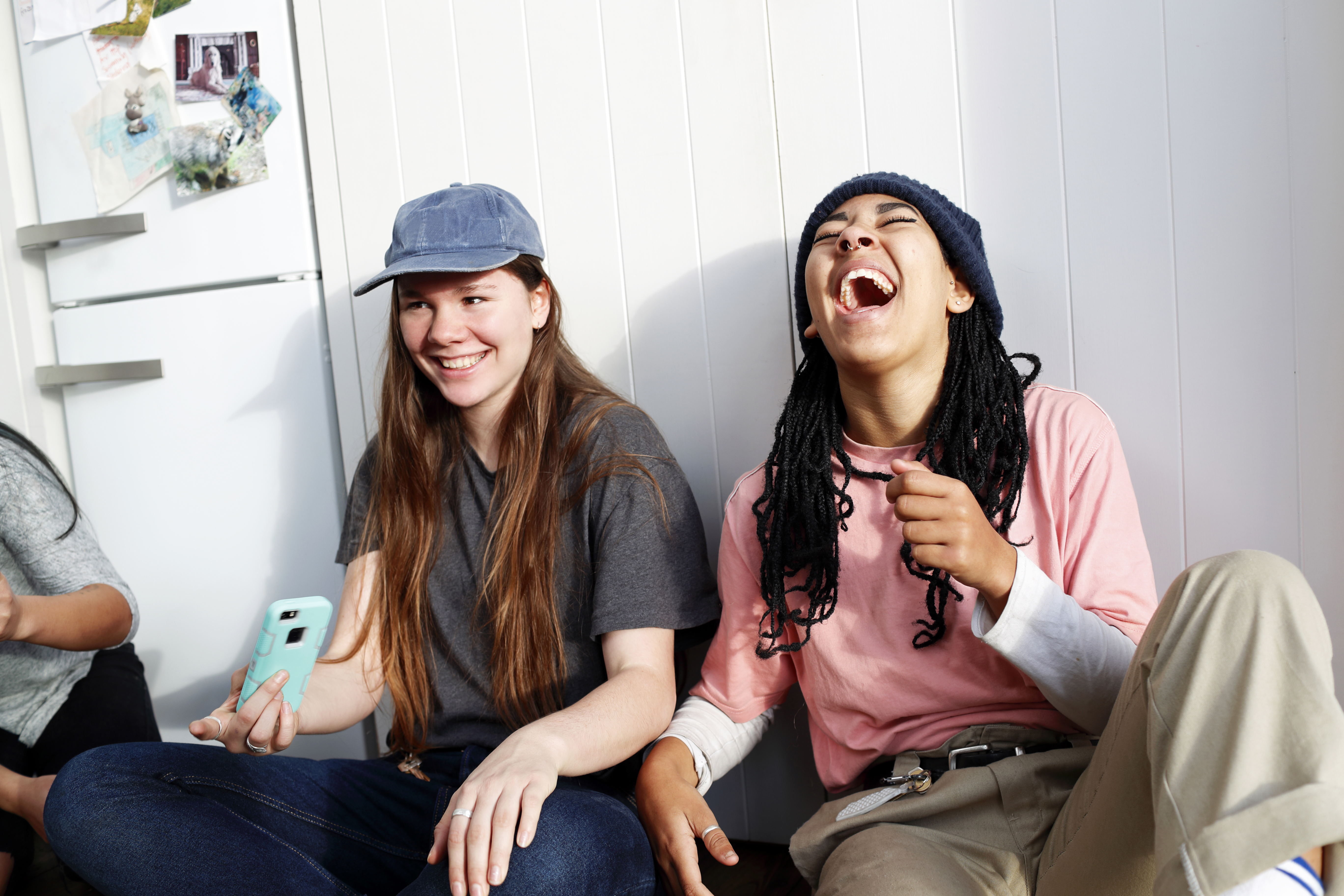
Credit: Getty
14. Tell them it's OK to say no. Whatever the situation, whatever they've already said, remind them that they can say no at any time (and their partner can too). Everything should stop then and there.
15. Tell them about the law. Explain sexual consent to them and that it is illegal to have sex if they're under 16, especially if their partner is over 16. They could be arrested for having sex with an underage partner, or if they are underage themselves and their partner is over 16, their partner could be in trouble with the law.
16. So they've got their first boy/girlfriend? Try to get them to open up about their feelings. How do they feel about them? Are they just good mates or do they have stronger feelings? Have they been intimate with each other? If they'll admit to that, then talk to them about the consequences.
17. What if they fall in love? Young love can be very painful, but a really important learning curve for your child. Talk to them about their emotions and explain that sometimes relationships can end in tears, and that you're always there for them - even though it may be very difficult for you as a parent to see them be hurt. Try to get to know their partner and include them in your family life. Invite them around for dinner, chat to them too. Let them know that you care about your child's relationship with them and support it.
18. Help keep them stay safe. They may not be having an intimate relationship, but sexually transmitted infections have risen dramatically in the last decade amongst young people, so it's important that your teenager knows about STIs and the importance of safe sex.
19. What about contraception? Of course, unprotected sex can lead to pregnancy too, so talk to your youngster about the dangers and contraceptive choices. It's very important that boys are equally aware of the importance of contraception and act responsibly when it comes to an intimate relationship. Offer to go with your teenager to your local sexual health clinic or doctor to talk about contraception.
20. What about pregnancy? Naturally talking to children about practicing safe sex is the best way to avoid this. But if it does happen, be sure to stay calm and support your child - no matter their role in it as best as you can. Take your child to see your GP, as they will be able to confirm the pregnancy and offer advice. Of course, you can give advice and support, but your child and potentially their partner as well have to make their own minds up on what to do about the pregnancy.
What if they don't want to talk about sex?

Credit: Getty
While you might feel like now is the best time to chat to your child about sex and relationships, they might not feel the same and that's absolutely fine. Children become curious about the birds and the bees at different ages, depending on their own development, who they spend time with and what is spoken about both inside and outside the home. The best thing to do in this case is, as our expert Ammanda suggests, make the space for them to come back at another time and ask questions by reminding them that it's okay to talk about these things.
If you've decided to bring the topic up because they are having classes about it at school, but they aren't keen to talk to you about it, then you can rest easy that they are getting accurate information from their teachers. But if you want to know more about the curriculum and what they'll learn, reach out to the school and request some more information.
Alternatively, you can offer them information yourself from one of the many great sex education and puberty books out there.
These are some of the best booking for talking to children about sex and puberty, based on age group...
Let's Talk About the Birds and the Bees
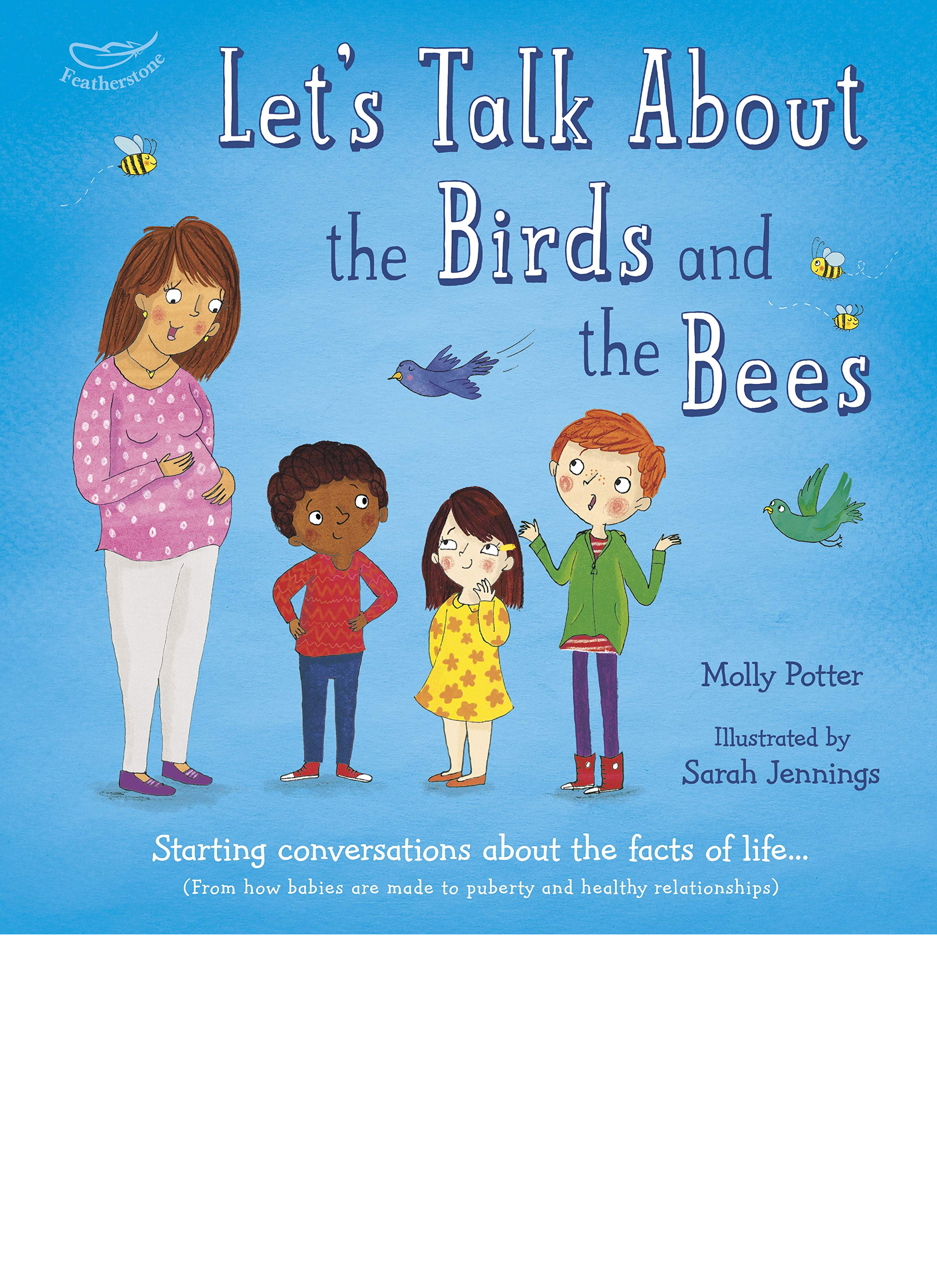
For those not quite ready for 'the talk' yet, but are maybe hearing things from friends in the playground and you want them to have the right information, there's this picture book by Molly Potter. Suitable for all body types, it covers the differences between girls and boys' bodies and the journey into adulthood with informative illustrations along the way.
There's also a section at the back with useful advice for parents for chatting about these topics.
Parents say: "I read this to my nearly 7yr old daughter and it was just the right level, I cringed reading it aloud but to her it was very interesting and informative! I'm glad I read it with her at this age - before she starts hearing things at school from friends which might not be so accurate! I'm disappointed the birth page said labour is usually "painful" and the pics show a lady in a hospital bed but other than that a great book for primary aged kids."
"A very straight-talking explanation of what may seem a tricky subject to broach with younger children, without any awkwardness. A great tool for sitting together with a child and going through 'the birds and the bees' talk. Thoroughly recommend."
Most suitable for those aged 8 to 12 years.
The Boys Guide to Growing Up
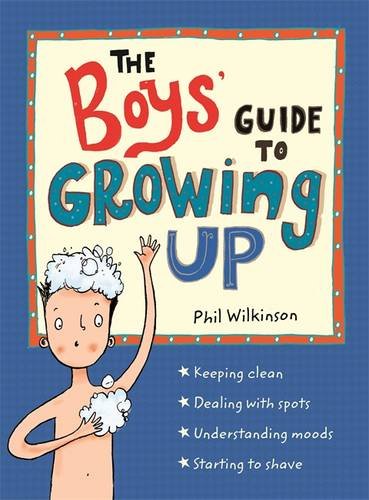
This book is one of a duo, teaching children mainly about puberty but also touching on the need-to-knows of sex and relationships. It's the ideal book if you're looking to give boys some knowledge on the issues, so they don't believe everything they hear in the playground, but they're not quite ready for anything too explicit.
Parents have said: "I have bought two of these (one each) for my nearly 10 year olds. They had started asking questions and some aspects are being covered in school. They have found it really helpful and it's answered questions they've been too embarrassed to ask "mum" about."
"This is a really informative book and has enabled him to look through, gain the knowledge he needs and has good illustrations.
I've found he will often refer back to the book at a later time. He's a little shy but now has the confidence to ask questions whenever he wants."
Most suitable for ages 9 - 12.
The Girls' Guide to Growing Up
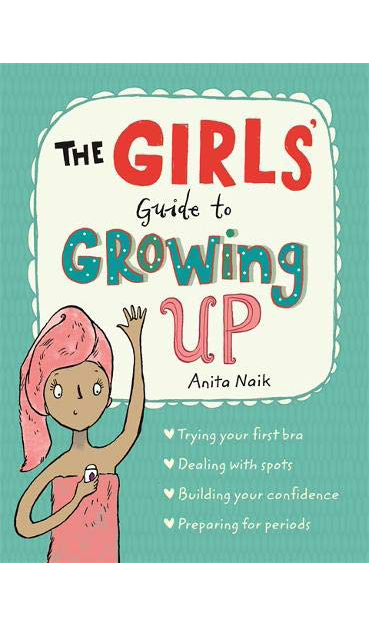
Exactly the same as the boys' one but with all the things that girls need to know about puberty and just the essentials about sex. Perfect for girls who are maybe just beginning to learn about these things at school and might have questions they don't want to ask parents.
Parents say: "Absolutely brilliant book. I bought this for my 9 year old who has started the dreaded mood swings and greasy hair/skin. I learnt a lot from this book and so did she! We've never shied away from periods and puberty but some things we just didn't know how to answer in a kid friendly way. The book took away the worry and we've breezed through it. The sex page is very gentle and actually incredibly informative. There is no detail that is unnecessary and no awkward pictures to accompany it."
"Appropriate information about puberty and sex - not too much information for a 10 year old. Good preparation for children in Year 6 who will learn about sexual education."
Most suitable for those aged 9 - 12.
A-Z of Growing Up, Puberty and Sex
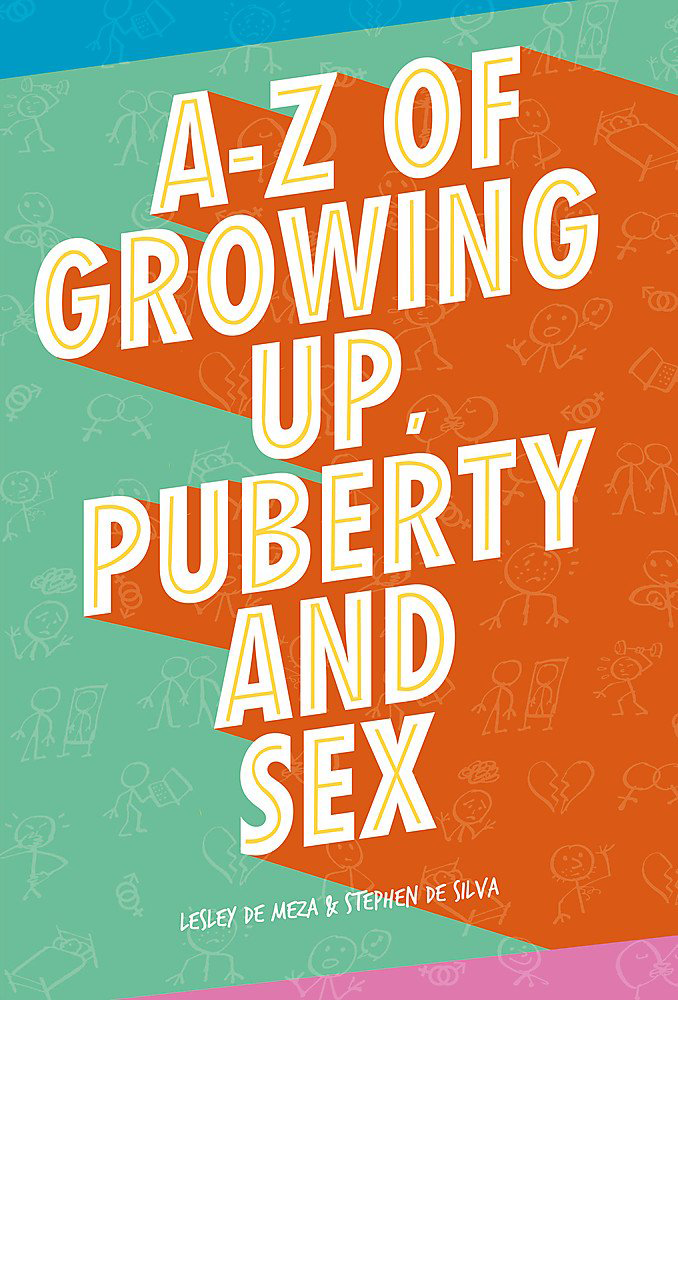
If your looking for something that covers the very basics and gives your child an introduction into the world of sex and intimate relationships, then this could be the book for them. While it certainly doesn't go into huge amounts of detail, it will answer their questions and open up the dialogue for more conversations in the future.
Set out in a dictionary format, it's easily accessible and quick to read - meaning kids can dip in and out of it when they want an answer.
Parents say: "It's a good book for covering basics. I bought it for my son because he had a lot of questions and I want to talk openly and honestly about these important issues. This book supports the very basics of it, but it does fall short in places sadly. I felt that their could have been more in depth information in many areas.
If you're looking for something that gives younger kids ie 9-11 years of age, a bit of insight, this would be helpful as a starting point."
"This is a good little book, which A-Z's a variety of topics linked to growing up and puberty. It's quite simplistic in it's approach - no graphic photographs or complex information - but also plenty of cross referencing and sources for further information.
My sons are happy to dip into this and formulate questions if necessary - a good resource but no replacement for talking of course."
Most suitable for those aged 9+.
Dr Christian's Guide to Growing Up Online
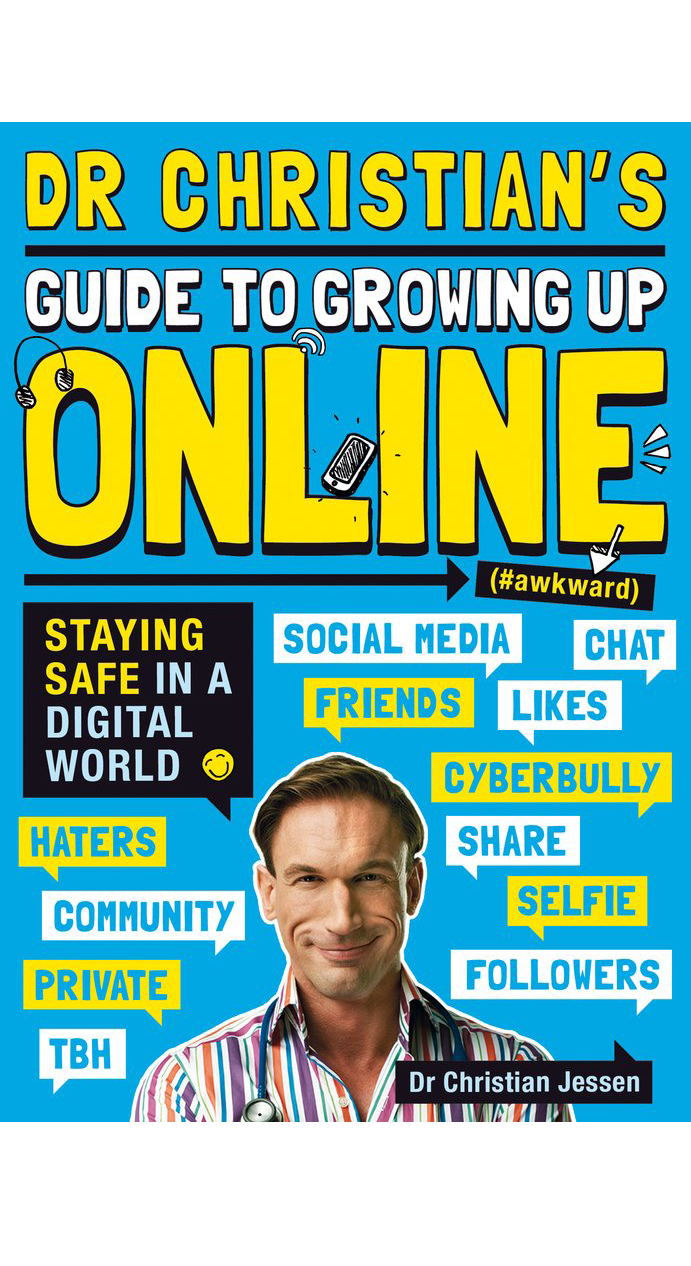
For those a little older and perhaps entering into the world of social media, whether they're supposed to or not, Dr Christian's guide to 'growing up online' is a great companion.
Parents say:"This little gem is an absolute find! It covers all the tech lingo and explains scenarios in a way that kids and teens can easily digest. It is well laid out and catchy but never preachy. There is a wealth of direction for kids in tricky situations that I know I would struggle to guide them on. And it may be that they would prefer to read in a book rather than discuss. Invaluable. So pleased I stumbled upon it-thank you!"
"Whether you're a parent or a carer I'd recommend you read it before you give this to your child, just so you know how he handles the topics and you're there for back-up in case your child asks you a question about something in the book."
Most suitable for ages 10 - 14 years.
Doing It: Let's Talk about Sex

For those in secondary school, YouTuber and sex educator Hannah Witton's book Doing It! is a great step up. Taking on the nitty gritty in a way that's informative and not sensationalised, it's the book to go to when your child needs to know more about the world around them.
Parents say: "I bought this book for my teenage daughter as I wanted an honest and accessible book that would give her a good overview on sex and counter-act the porn influenced ideas of sex that her generation is saturated with.
I read the book myself and it is funny, accessible and very well written.
All types of sex are openly discussed and the author's own experiences are shared.
This book is like having that older sister or cousin you can turn to for advice."
"I would recommend it for young people aged 13+, as the content is rather mature for a younger age.
My daughter uses it to dip in and out of rather than reading it cover to cover. Highly recommended. This should be on the Sex and Relationships curriculum at school."
Most suitable for ages 14+.
The Ultimate Puberty Book for Girls: Celebrate your Body
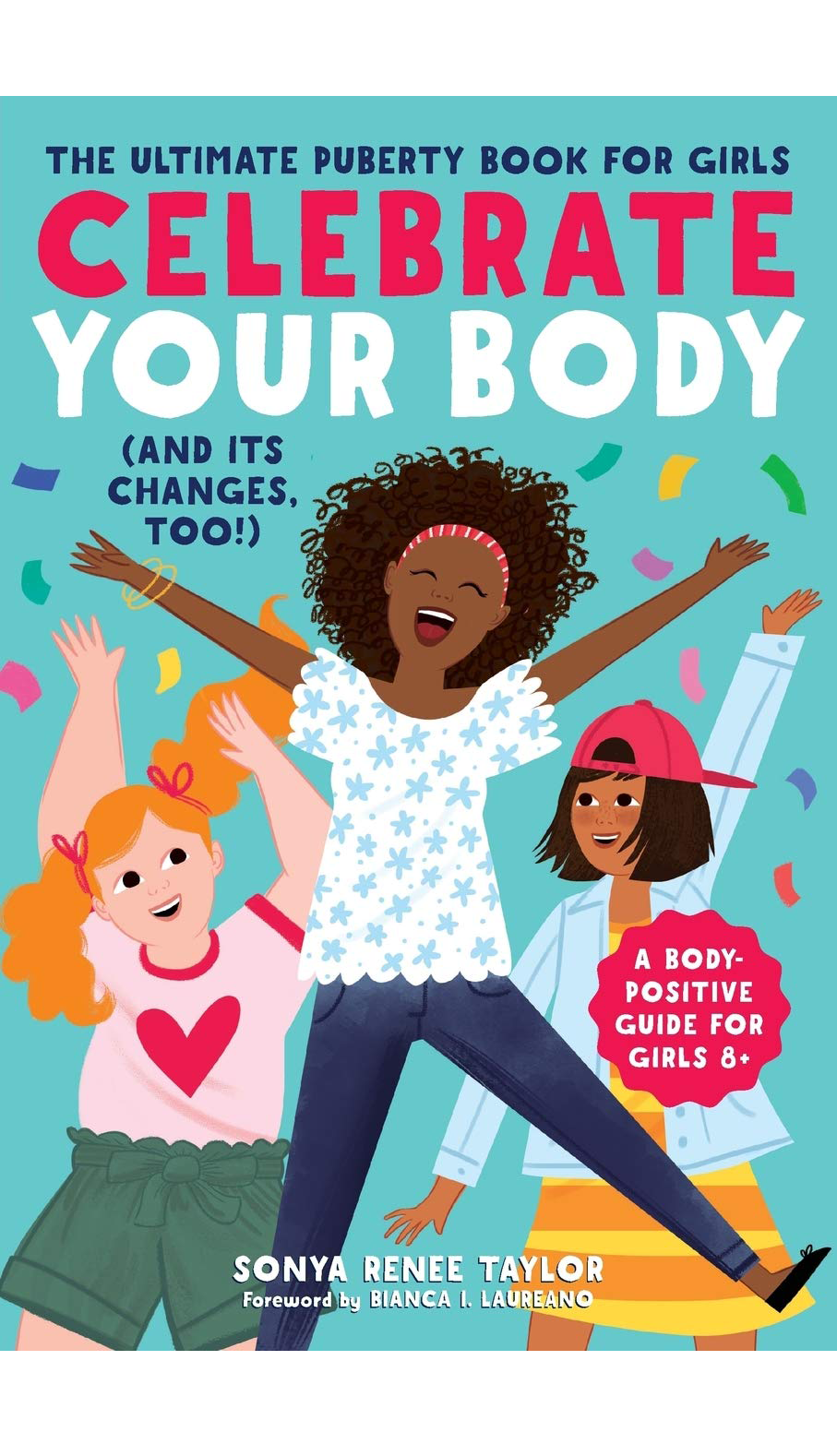
Complete with cute illustrations, this inclusive manual is the comforting starter book for any girl approaching or just starting puberty. While it does touch changing feelings, it's main focus is on body changes and what they need to know about them.
Parents say: "The author writes perfectly for either children to read on their own or together with an adult. I have been reading it with my daughter and it's great for answering all the questions she has. But my biggest reason for thinking this book is so great is the positive body image messages all the way through the book. It talks about how every body is completely unique and beautiful. It states the importance of there being no one way for your body to develop as well as celebrating all different body types. Also, if anyone would rather avoid sex topics in a book then this is the one for you."
"Good informative advice and information. Was exactly what a girl needs initially to understand body changes."
Most suitable for ages 9+.
Guy Stuff: The Body Book for Boys
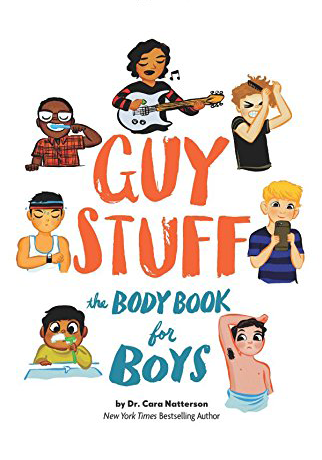
A great book for boys if you're looking to keep topics of sex out of earshot, but still want them to know what to do about some of the changes that might be coming as puberty starts.
Another one with fun illustrations and ideal for just dipping in and out of if they have a question or concern about something.
Parents say: "Good book for younger boys 10+ to get a handle on what puberty has is store for then. Useful, straight talking but readable for a 10 year old."
"Perfect. Just the right amount of information about growing and changing without getting into birds and bees."
Most suitable for ages 9+.
Source: https://www.goodto.com/family/talking-to-children-about-sex-62100

0 Response to "Explainging Sex to a Kid Funny"
Post a Comment